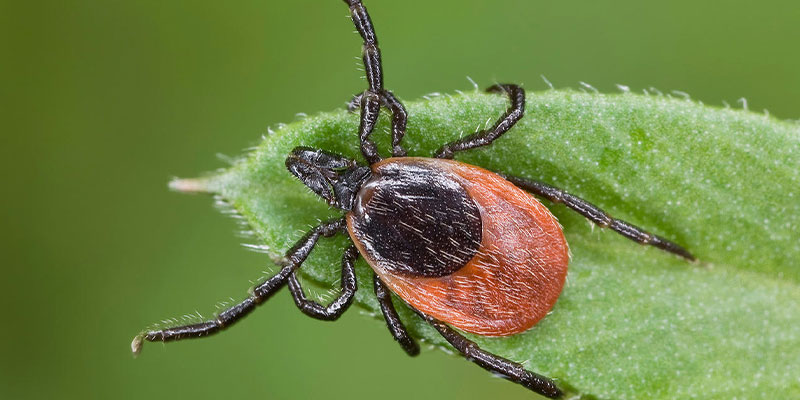Facts about Ticks!!

Every pet parent knows what a nuisance ticks create in their pet’s life. But there are certain facts that you need to know about these pesky creatures, and what they can possibly do. Therefore, here are 8 facts about ticks that you probably didn’t know.
Ticks Aren’t Insects
Generally, the majority of people always consider ticks to be insects. But, the fact is that ticks are arachnids, which means they are more closely related to spiders than they are to mosquitoes or flies. They can be classified as relatives of scorpions, mites, and spiders. When you take a closer look, ticks resemble spiders as they have four pairs of legs with no antennae and they don’t even jump or fly either.
Ticks are Dog Lovers
You are not the only one who loves dogs. Ticks can be ranked on the hit list of being a dog lover as well. Certain tick species such as Brown dog tick and American dog tick prefer dogs as hosts. Ticks feed on the blood of their hosts; therefore, they find dogs to be an easy target. Pet parents usually take their Fido for walks or to play in the nearby park or just to sniff and explore the world. This is the time when ticks can attack your Fido and make him their house for a few days.
Ticks Like To Stick Around
Ticks are like those temporary people who come into our lives, stick there for some time, and eventually, start being a pain that we have to remove them as soon as possible. Their first hunt for a good spot is in a dog’s body, where they can set up their picnic spot. Next, they bury their teeth deeply into the skin of the host, which helps them to securely stay attached to the host’s body to feed on it.
Ticks Don’t Immediately Transmit Diseases
It is imperative for pet parents to know that ticks are not born with disease agents. They require more time during feeding. That’s the reason why many tick-borne diseases are only transmitted after many hours of feeding. Ticks generally spread Lyme disease, but if you remove a tick within 24 hours, the chances of getting Lyme disease are very low. The time-lapse can be an advantage for pet parents to provide tick preventive and eliminate ticks faster than they can transmit diseases.
Ticks Can Spread Multiple Diseases
Humans aren’t tick’s primary choice as their host. Ticks generally feed on dogs, cats, mice, rabbits, deer, and birds. They infect their hosts with certain pathogens and pick up bacteria that cause diseases. Tick-borne diseases can be very serious, and if your dog carries ticks in the house, it can bite you and also spread diseases.
There Are Almost 900 Types of Ticks
There are roughly 899 tick species in the world. But only 90 of them are found in the United States, among which many of them are capable of transmitting diseases such as Rocky Mountain spotted fever and Lyme disease. There are numerous types of ticks found across the country, and they fall into two categories: hard-shell and soft-shell ticks. Among all, certain ticks are considered dangerous due to their ability to transmit diseases to people.
Ticks Are Proactive in summers
There is no season of ubiquitous creepy crawlies, but summer is an open season of ticks. Warm weather leads to an increase in the tick population because the temperature helps ticks’ hosts to survive and also thrive year-around. In the summer season, non-adult ticks or nymphs are in full swing.
Ticks Can Be Prevented and Eliminated
Tick infestations are common in dogs and cats. However, the good news is that you can protect your pets from ticks by preventing and also eliminating them. There are various tick bite treatments that effectively break the tick life cycle and eliminate them from your dog.
So now when you’re aware of the tick facts, all you need to do is prevent them from biting your dog by using tick preventives before they take a serious turn.

David joined CanadaVetCare in 2013 as a product analyst and veterinary assistant. Being a passionate pet lover and keen animal health researcher, David had always found ways and solutions to help pet parents to improve their pets’ health. He is always happy to answer pet health-related queries and recommending pet parents for the right pet product for their furry companions.

